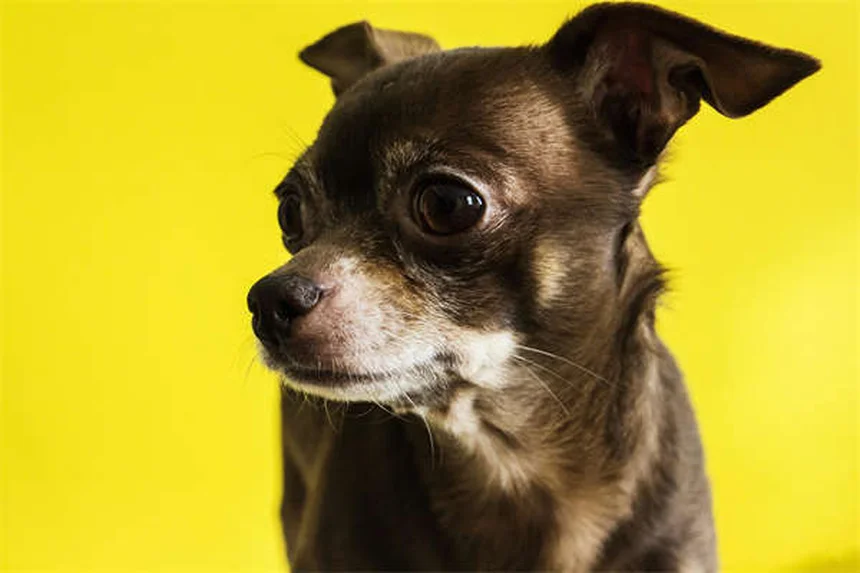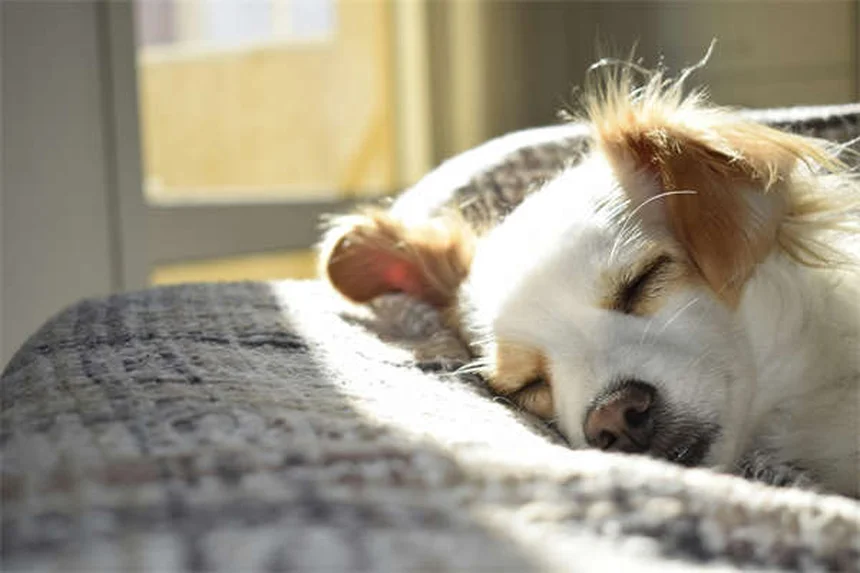Is your rabbit having painful or frequent urination? The answer is: these symptoms (dysuria and pollakiuria) signal serious urinary tract issues that need immediate attention! As a bunny owner myself, I know how scary it is when your fluffy friend starts peeing blood or straining in the litter box. Urinary problems in rabbits can escalate quickly, so let's break down what you need to watch for and why it happens. You'll learn to spot the difference between normal bunny bathroom habits and warning signs that scream vet visit now! We'll cover everything from common causes like bladder infections to that time Fluffy ate too many calcium-rich treats. Most importantly, I'll share what treatment options worked for my rabbits and how to prevent these issues in the future.
E.g. :Can Dogs Eat Honey? 5 Surprising Benefits & Safety Tips
- 1、Is Your Bunny Having Bathroom Troubles?
- 2、Spotting the Signs: Is Your Rabbit in Trouble?
- 3、Why Is This Happening to My Fluffy Friend?
- 4、Getting to the Bottom of It: Diagnosis
- 5、Fixing the Problem: Treatment Options
- 6、Helping Your Bunny Recover and Stay Healthy
- 7、Beyond the Basics: Understanding Rabbit Urinary Health
- 8、Alternative Therapies Worth Considering
- 9、Understanding the Emotional Impact
- 10、Financial Considerations and Planning
- 11、The Future of Rabbit Urinary Health
- 12、FAQs
Is Your Bunny Having Bathroom Troubles?
Hey there fellow rabbit lovers! Let's talk about something we don't often discuss - bunny pee problems. I know it's not the most glamorous topic, but urinary issues in rabbits can be serious business. When your fluffy friend starts having painful or frequent urination, it's time to pay attention.
What's Going On Down There?
Imagine needing to pee every five minutes - ouch! That's what dysuria (painful peeing) and pollakiuria (constant bathroom trips) feel like for bunnies. Their tiny bladders get irritated and inflamed, making every potty break a struggle.
Did you know rabbits can develop urinary tract infections just like humans? Their systems are actually quite similar to ours in many ways. When something's wrong, you'll notice changes in their bathroom habits - maybe they're visiting their litter box way more often, or having accidents outside their usual spot. Some bunnies even pee when you pick them up because they can't hold it anymore!
Spotting the Signs: Is Your Rabbit in Trouble?
The Obvious Red Flags
Here's what should make you grab your car keys and head to the vet:
- Blood in the urine (looks pink or red)
- Thick, cloudy, or milky-looking pee
- Straining to urinate with little results
These symptoms scream "EMERGENCY!" louder than your bunny when you're late with dinner.
 Photos provided by pixabay
Photos provided by pixabay
The Subtle Warning Signs
Some signs are quieter but just as important:
| Normal Behavior | Concerning Behavior |
|---|---|
| Regular litter box use | Constant litter box visits |
| Clear or pale yellow urine | Dark, thick, or bloody urine |
| Happy hopping | Hunched posture, lethargy |
Ever notice your bunny grinding its teeth when it's not eating? That's not them dreaming of carrots - it's often a sign of pain. And if they're turning up their nose at food, something's definitely wrong. Rabbits have delicate digestive systems, and when they stop eating, it becomes an emergency fast.
Why Is This Happening to My Fluffy Friend?
The Usual Suspects
Let's play detective! Here are the top culprits behind bunny bathroom woes:
1. Calcium Overload: Rabbits process calcium differently than we do. Too much calcium in their diet (hello, alfalfa hay!) can lead to bladder sludge or stones. Think of it like trying to pour concrete through a garden hose - not gonna work well!
2. Infections: Bacteria love warm, moist places - and a rabbit's urinary tract fits the bill perfectly. These infections can spread quickly if not treated.
Less Common but Serious Causes
Sometimes the problem starts elsewhere:
Reproductive issues in unfixed bunnies can cause urinary symptoms. And overweight rabbits? They're at higher risk for all sorts of health problems, including urinary troubles. It's like wearing a tight belt all the time - nothing flows quite right!
Ever wonder why your vet asks about possible accidents or injuries? Trauma can cause internal issues that mess with urination. That time Fluffy took a tumble off the couch might be more serious than you thought.
Getting to the Bottom of It: Diagnosis
 Photos provided by pixabay
Photos provided by pixabay
The Subtle Warning Signs
Your vet will play 20 questions about your bunny's habits. Be ready to answer about:
- Diet (what kind of hay? how many treats?)
- Water intake
- Litter box changes
- Any recent stressful events
They'll probably run some tests - blood work, urine analysis, maybe even x-rays or ultrasound. It's like a bunny health detective kit! The coolest part? They might use special dye that shows up on x-rays to get a clear picture of what's happening in there.
When Tests Come Back Normal
Here's something frustrating - sometimes all the tests come back fine even when your bunny is clearly uncomfortable. Does that mean you're imagining things? Absolutely not! Rabbits are masters at hiding illness, so by the time they show symptoms, something's definitely wrong. Your vet might suggest monitoring or additional tests if the problem persists.
Fixing the Problem: Treatment Options
Outpatient Care
If your bunny's case isn't too severe, you might get to take them home with:
- Antibiotics (if there's infection)
- Pain medication (because nobody likes hurting when they pee)
- Diet changes (more on that later)
The key is following directions carefully. Giving rabbit meds can be tricky - ever tried to convince a bunny to take yucky-tasting medicine? Pro tip: mix it with a little mashed banana!
 Photos provided by pixabay
Photos provided by pixabay
The Subtle Warning Signs
For serious cases, your bunny might need to stay at the vet's. This usually happens when:
There's a complete blockage (can't pee at all - VERY dangerous)
Multiple systems are affected
They're not eating on their own
Hospital stays aren't fun, but they can save your bunny's life. The vet team will give fluids, medications, and monitor them closely. You might even get to visit - just don't be surprised if your bunny gives you the cold shoulder for leaving them there!
Helping Your Bunny Recover and Stay Healthy
Follow-up is Key
Think one vet visit fixes everything? Not quite! You'll need follow-up appointments to:
- Check if medications are working
- Monitor for complications
- Adjust treatment if needed
It's like tuning up a car - regular check-ins keep everything running smoothly. Mark your calendar so you don't forget!
Preventing Future Problems
Want to keep your bunny's plumbing in good shape? Here's how:
1. Hydration Station: Make sure fresh water is always available. Some bunnies prefer bowls over bottles - try both!
2. The Right Diet: Timothy hay should be the main food for adult rabbits. Limit high-calcium veggies like kale and spinach. And go easy on the treats - no matter how cute they beg!
3. Exercise: A sedentary bunny is an unhealthy bunny. Make sure they get plenty of hopping time to keep everything moving.
Remember, you're your bunny's best advocate. If something seems off, trust your gut and get it checked out. After all, our fluffy friends depend on us to notice when they're not feeling their best!
Beyond the Basics: Understanding Rabbit Urinary Health
The Hidden Dangers of Dehydration
You might not realize how crucial water intake is for preventing urinary issues in rabbits. Dehydration can sneak up on bunnies faster than you'd think! Their bodies are about 70% water, just like ours, but they're much smaller so imbalances happen quicker.
Here's something fascinating - rabbits have a unique way of conserving water that actually contributes to urinary problems. Their kidneys are super efficient at reabsorbing water, which means waste products become more concentrated. It's like making orange juice from concentrate - except in this case, we're talking about urine crystals forming!
Environmental Factors You Might Overlook
Did you know your rabbit's living space could be contributing to their bathroom troubles? Let me break it down for you:
Temperature matters more than you'd guess. When bunnies get too hot (above 80°F), they drink less water. And we already know what happens when they don't drink enough! I once had a client whose rabbit developed sludge just from being near a sunny window all summer.
Stress is another silent culprit. Have you ever noticed your rabbit acting differently after you rearrange furniture? Changes in their environment can cause stress that leads to urinary issues. It's like when you're nervous before a big presentation and suddenly need to pee every five minutes!
Alternative Therapies Worth Considering
Acupuncture for Bunnies? You Bet!
When traditional treatments aren't enough, have you considered alternative options? Veterinary acupuncture has shown promising results for rabbits with chronic urinary problems. Tiny needles stimulate specific points that help with pain relief and bladder function.
I met a rabbit named Peanut who couldn't shake recurrent UTIs until his owner tried acupuncture. After six sessions, his symptoms improved dramatically. The best part? Peanut actually seemed to enjoy his treatments - he'd flop over and start purring when the needles went in!
The Power of Physical Therapy
Here's something most rabbit owners never think about - physical therapy can help with urinary issues! Specialized massages and exercises improve circulation to the bladder and help prevent sludge buildup.
Simple techniques you can try at home include gentle belly rubs in a clockwise motion (this follows the natural direction of digestion) and encouraging your bunny to do little hops over low obstacles. It's like yoga for rabbits - keeps everything flowing smoothly!
Understanding the Emotional Impact
How Urinary Problems Affect Bunny Behavior
Have you noticed your usually sweet rabbit becoming grumpy or withdrawn? That's not just coincidence. Chronic pain from urinary issues can seriously impact their personality. They might:
- Stop grooming themselves properly
- Become less interested in toys
- Start avoiding being handled
I'll never forget Buttercup, a normally affectionate lop who started biting when her bladder issues began. After treatment, she returned to her cuddly self - proof that physical health directly affects emotional wellbeing!
The Human-Animal Bond During Illness
Caring for a sick rabbit can be emotionally draining for you too. The constant worry, the midnight vet runs, the frustration when treatments don't work immediately - it's tough! But here's the beautiful part:
Rabbits are incredibly perceptive creatures. They sense when you're helping them, even if they don't show it in obvious ways. That moment when they finally pee normally again after days of struggle? Pure joy for both of you! It strengthens your bond in ways normal interactions never could.
Financial Considerations and Planning
Budgeting for Bunny Healthcare
Let's talk about something uncomfortable but necessary - money. Urinary issues can become expensive quickly. Here's a realistic breakdown of potential costs:
| Service | Average Cost |
|---|---|
| Initial exam | $50-$100 |
| Urinalysis | $40-$80 |
| X-rays | $150-$300 |
| Hospitalization (per day) | $200-$500 |
Does this mean you need to be rich to own a rabbit? Not at all! Setting aside $20/month in a "bunny emergency fund" can prevent financial stress when problems arise. Pet insurance is another option worth exploring - some plans cover up to 90% of costs after the deductible.
When Costs Become Overwhelming
What if treatment costs more than you can afford? This is heartbreaking, but there are options. Many vets offer payment plans, and some animal charities provide financial assistance for emergency care. Don't be afraid to ask - your vet wants to help your bunny get better just as much as you do!
I always recommend having an honest conversation with your vet about budget constraints early in the process. They can often suggest alternative treatment plans or prioritize the most critical interventions. Remember - some care is better than no care at all!
The Future of Rabbit Urinary Health
Exciting Advances in Treatment
Did you know researchers are developing new treatments specifically for rabbit urinary issues? One promising area is probiotic therapy - specially formulated good bacteria that prevent harmful bacteria from taking hold in the urinary tract.
Another breakthrough involves laser therapy to break up bladder stones without surgery. It's still experimental, but early results show rabbits recovering much faster than with traditional surgery. Imagine your bunny bouncing back the same day instead of weeks of recovery!
How You Can Contribute to Research
Want to help advance rabbit healthcare? Consider participating in citizen science projects or sharing your bunny's health history (anonymously) with research databases. Every bit of data helps scientists understand these conditions better.
Some veterinary schools also need rabbit patients for clinical trials of new treatments. These are carefully monitored and often provide free or discounted care. Your bunny could be a pioneer in helping future generations of rabbits stay healthier!
E.g. :Rabbit UTI (Urinary Tract Infection) | PetMD
FAQs
Q: How can I tell if my rabbit has a urinary tract infection?
A: Watch for these red flags: blood in the urine (pink or red tint), thick/milky pee, and constant litter box visits. Your bunny might hunch over in pain or grind its teeth - that's their way of saying "ouch!" Unlike cats, rabbits often pee when picked up if they have UTIs because they can't hold it. I learned this the hard way when my rabbit Thumper soaked my shirt! Urinary tract infections need vet care fast - rabbits can go downhill quickly without antibiotics. The vet will likely do a urinalysis and maybe blood work to confirm.
Q: What foods cause urinary problems in rabbits?
A: High-calcium foods are the main culprits! Alfalfa hay (great for babies but bad for adults), kale, spinach, and parsley can lead to bladder sludge - think of it like bunny kidney stones. After my rabbit Snowball developed sludge, our vet switched her to timothy hay and limited leafy greens. Also, sugary treats disrupt their delicate systems. I now use fresh herbs like cilantro as treats instead of store-bought goodies. Always provide unlimited fresh water - some bunnies prefer bowls over bottles!
Q: Can rabbit urinary problems be fatal?
A: Absolutely, and this terrifies every bunny owner. Urinary blockages can kill within 24 hours if untreated! When a rabbit stops peeing completely, it's an ER situation - their bladder can rupture. Even unblocked UTIs cause deadly complications if the infection spreads. My neighbor's rabbit nearly died from a UTI that turned septic. That's why we stress immediate vet care for any urinary symptoms. The good news? With prompt treatment, most rabbits recover fully. Prevention through proper diet and hydration is key!
Q: How do vets test for rabbit urinary issues?
A: Your vet will play detective with these tools: urinalysis (checks for blood/infection), blood tests (calcium levels), and imaging like X-rays or ultrasound. The coolest part? They might use contrast dye that lights up the urinary tract on X-rays - I call it the bunny glow test! Be ready to discuss your rabbit's diet and habits in detail. Sometimes tests come back normal at first - if symptoms continue, push for further investigation. My vet did three urinalyses before catching Snowball's infection.
Q: What's the treatment for rabbit urinary problems?
A: Treatment depends on the cause but often includes: antibiotics for infections, pain meds (critical for comfort), and fluid therapy. Severe cases need hospitalization with IV fluids. For bladder sludge, vets may use subcutaneous fluids and dietary changes. My Thumper needed all three! Giving meds can be tricky - we hide pills in banana or use syringe-flavored compounds. Follow-up visits are crucial to monitor progress. Most importantly, never use dog/cat medications - rabbits need species-specific treatment!



Discuss